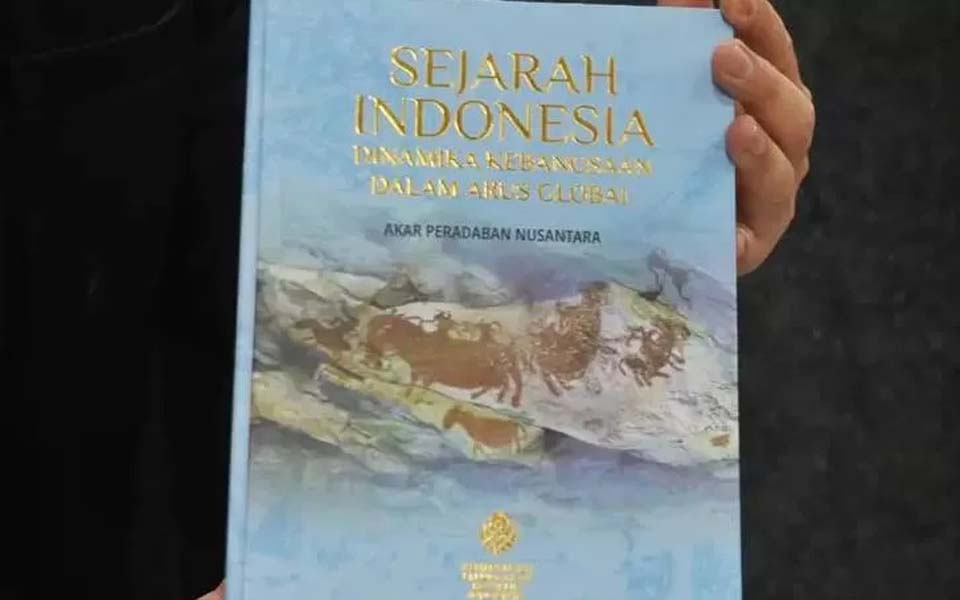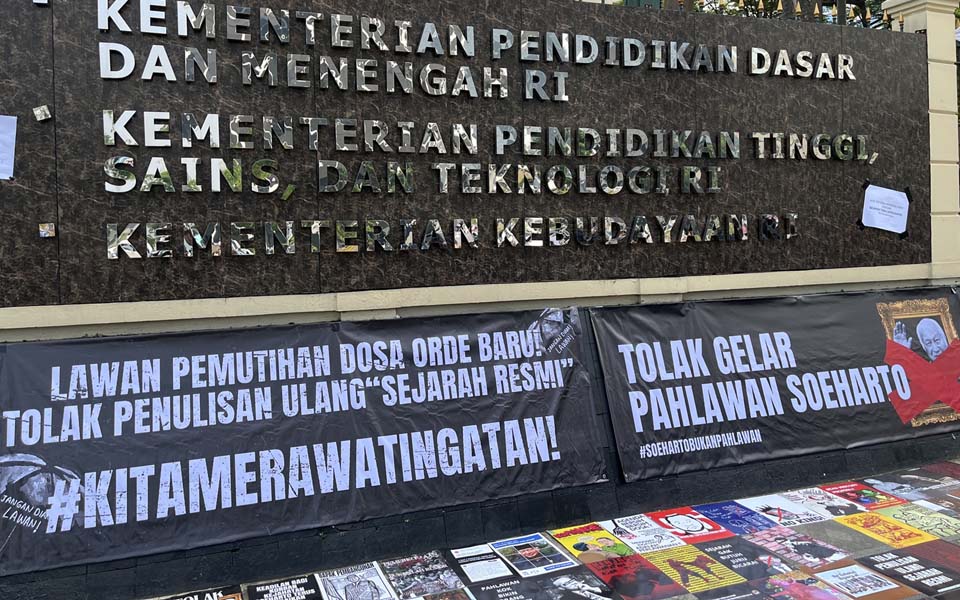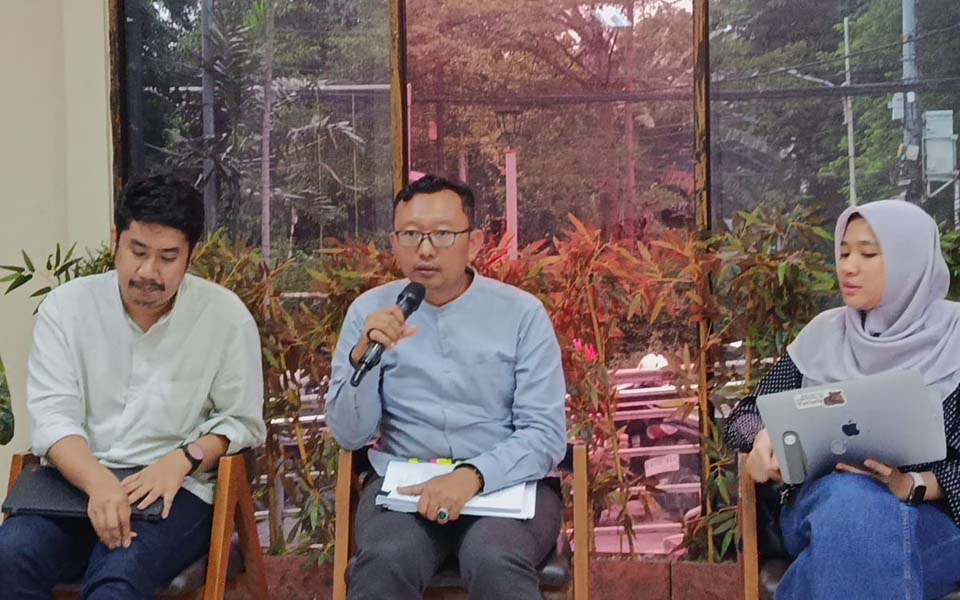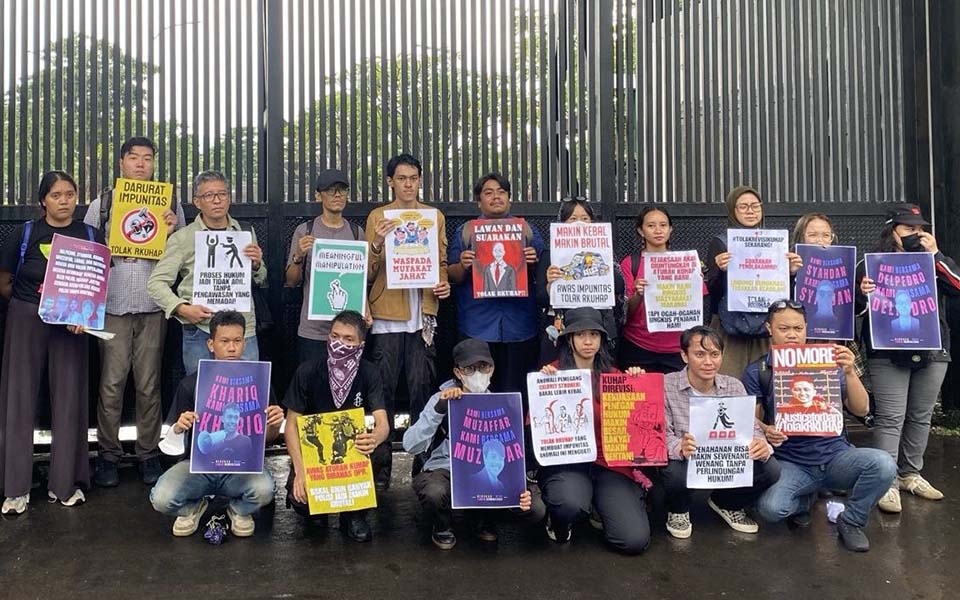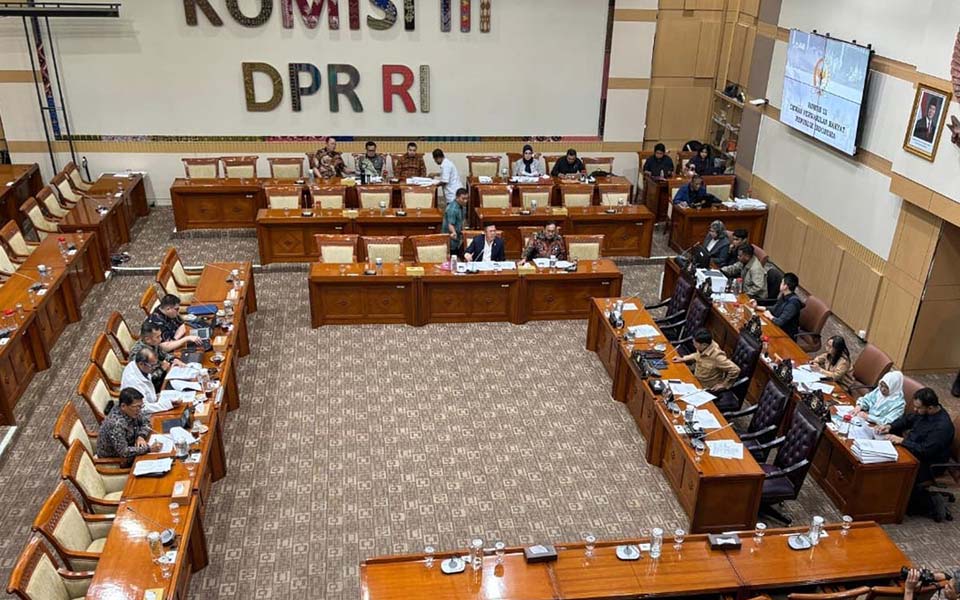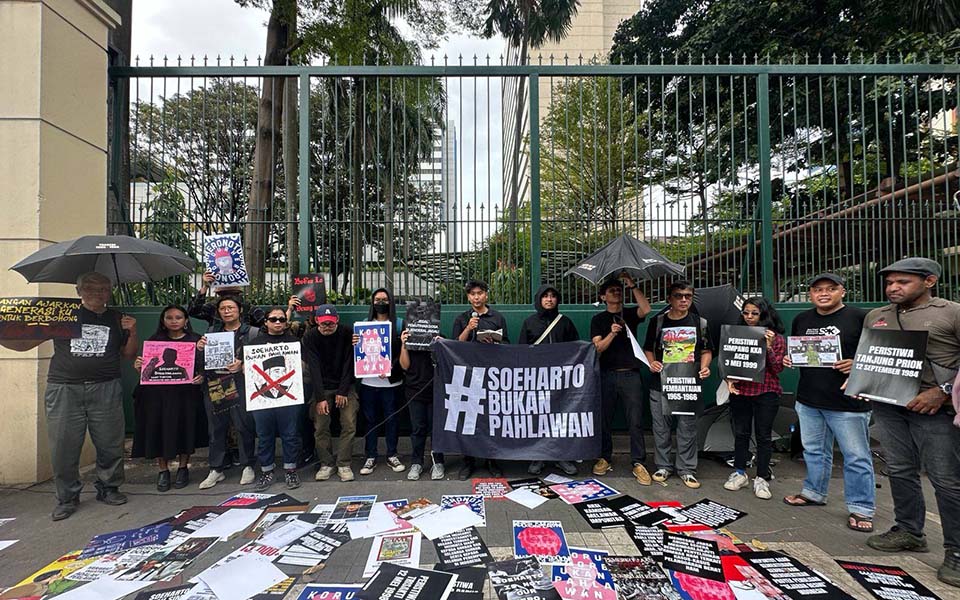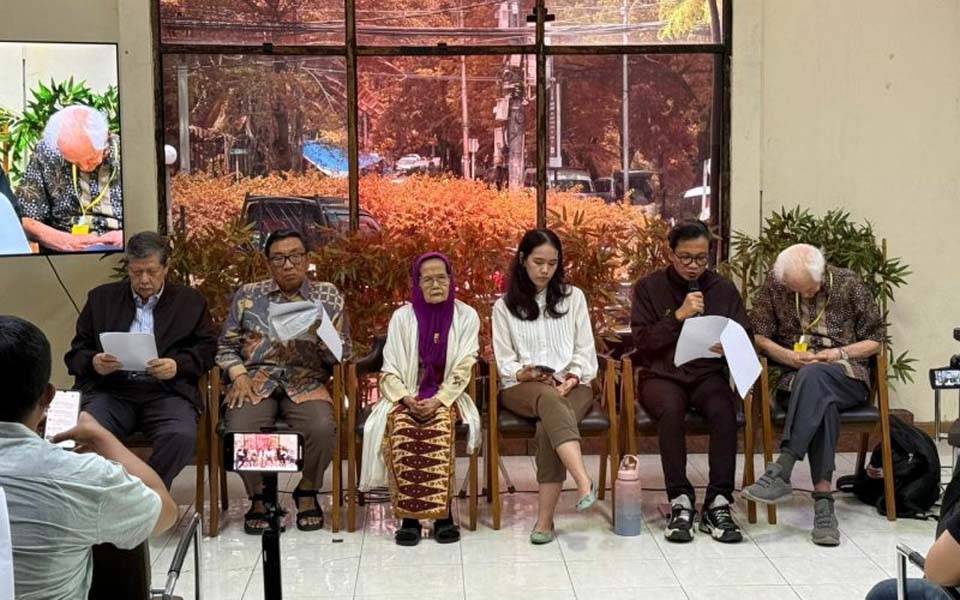Today, Thursday November 13, Commission III of the House of Representatives (DPR), along with the government through the Ministry of Law and the Ministry of State Secretariat, completed deliberations on the Draft Criminal Procedure Code (RUU KUHAP) and made a Level I decision in just two days. This means the RUU KUHAP is just one step away from being ratified and is only awaiting a plenary session that is scheduled for next week.
During the deliberations on RUU KUHAP, we from the Civil Society Coalition for KUHAP Reform believe there are a multitude of issues, both in terms of the deliberation process and the substance of the decisions. The deliberations appeared rushed, seeking to ratify the KUHAP so that it could come into effect simultaneously with the new Criminal Code (KUHP) in January 2026.
Furthermore, the Civil Society Coalition for KUHAP Reform's letter requesting a response to input during the public hearing (RDPU) and written input submitted directly was not responded to, or even considered, nor accommodated in the RUU KUHAP deliberations.
On the other hand, from a substantive perspective, the articles in the RUU KUHAP, which has been approved at the first level, contain problematic articles, rubber (catch all) articles and articles that foster the abuse of authority, including:
Anyone can be trapped by the authorities
Undercover buy operations and controlled delivery, which were previously under the jurisdiction of investigators and only for specific crimes, namely narcotics, are now considered a method of investigation (creating criminal acts) that can be applied to all types of crimes, without limitations and without judicial oversight (Article 16). This broad authority without oversight has the potential to open opportunities for entrapment by law enforcement officials to create criminal acts and manipulate the perpetrators, which is the very purpose of the investigation phase itself, namely determining whether or not a crime has occurred.
Anyone can be picked up, arrested or detained without explanation even during the investigation stage before a crime has been confirmed
Anyone can be charged under the rubber (catchall) article under the pretext of securing a case, especially during the investigation stage, when a crime has not yet been confirmed (Article 5). In fact, compared to Article 5 of the existing KUHAP, the actions that can be taken during the investigation stage are very limited, with no detention permitted at all. However, under Article 5 of the RUU KUHAP, during the investigation stage, arrests, prohibitions on leaving the premises, searches and even detention can be carried out, even though a crime has not yet been confirmed.
Anyone can be subjected to arbitrary arrest and detention without a judge's permission
Forcible arrest and detention, as currently in place, leaves room for arbitrary arrest by authorities because there is no oversight by the courts through habeas corpus hearings. Furthermore, the existing regulations regarding excessively long detention periods (more than 124 hours) in sectoral laws outside the KUHAP have not been corrected in the RUU KUHAP (Articles 90, 93).
Anyone can be subjected to searches, seizures, wiretaps and blocking based on the subjectivity of officials without a judge's permission
Forcible searches, seizures and blocking can be carried out without court permission on subjective grounds by officials (Articles 105, 112A and 132A). The RUU KUHAP also authorises investigators to conduct wiretaps without a judge's permission, based on a law that has not yet been enacted (Article 124).
Anyone can be extorted and forced into a settlement under the pretext of restorative justice (RJ) even in the darkest corner of the investigation
Article 74a of the Criminal Procedure Code (KUHAP) Bill explains that a peace agreement (settlement) between the perpetrator and victim can be implemented at a stage where a crime has not yet been determined (the investigation). This is highly questionable: how can there be no crime yet, yet there are already perpetrators and victims? Furthermore, a settlement determined by a court is merely a letter terminating the investigation, and the termination of the investigation is not reported to any authorities at all, creating a dark corner in the investigation.
The RUU KUHAP fails to guarantee a systems of checks and balances by the courts within the restorative justice mechanism because the judge's decision to terminate the investigation is merely a rubber stamp, without mandating the judge to conduct a substantial examination (judicial scrutiny) or providing the option to refuse to enact a restorative justice agreement that does not comply with the provisions, including if there are indications of coercion, extortion or other abuse by officials. (Articles 78, 79)
The police can control everything
All civil servants (PPNS) and special investigators are placed under the coordination of the police, making the National Police (Polri) a superpower with immense control (Articles 7 and 8). This is despite the fact that they still face a backlog of cases each year and have not been optimal in following up on public reports to investigate crimes.
Any person with disabilities could be without protection
The articles in the RUU KUHAP are still ableist because they do not require adequate accommodation for persons with disabilities who come into conflict with the law, potentially creating an unequal and discriminatory legal process. Furthermore, Article 137A opens the door to indefinite imprisonment for persons with mental and intellectual disabilities, implicitly deeming them to be without legal capacity. This article has the potential to legitimise deprivation of liberty and arbitrary detention, as the sanctions imposed are not considered criminal decisions, thus lacking clear standards regarding time limits, oversight mechanisms or termination of the action. This situation opens up space for coercive practices under the pretext of law enforcement.
Anyone can be affected, anyone can become a victim, anyone can be made a suspect, and all of this happened because the RUU KUHAP was rushed through
The RUU KUHAP will come into effect without a transition period, immediately binding millions of officials and citizens without the necessary infrastructure and knowledge, starting January 2, 2026. There are more than 10 implementing regulations (Articles 332 and 334) that will be rushed through within a year. This means the potential for chaos in the implementation of the KUHAP without implementing regulations will be very real for at least the next year. The Coalition has also frequently highlighted that the need to accommodate crucial changes to the new KUHUP that have not been adequately addressed in the final draft of the RUU KUHAP, which was passed at Level I today.
Based on the issues above, we urge:
1. That the president withdraw the draft RUU KUHAP as of November 13, 2025, from further discussion at the Level II plenary session.
2. That the government and the DPR revise the substance of the draft RUU KUHAP as of November 13, 2025, and re-discuss the concept the direction of the KUHAP revisions in order to strengthen judicial scrutiny and checks and balances, as proposed in the Civil Society counter-draft RUU KUHAP; and
3. That The Government and DPR refrain from using misleading public arguments regarding the enactment of the new Criminal Code (KUHP) merely to rush through the ratification of the still highly problematic RUU KUHAP.
#SemuaBisaKena (Anyone can be targeted) #SemuaBisaJadiKorban (Anyone can become a victim) #RKUHAPLaluDitangkap (RUU KUHAP then Arrested)
Jakarta, November 14, 2025
With respect
Civil Society Coalition for KUHAP Reform
[Translated by James Balowski. The original title of the article was "Peringatan Darurat: Presiden mesti tarik draf RUU KUHAP".]
Source: https://ylbhi.or.id/informasi/siaran-pers/peringatan-darurat-presiden-mesti-tarik-draf-ruu-kuhap/






